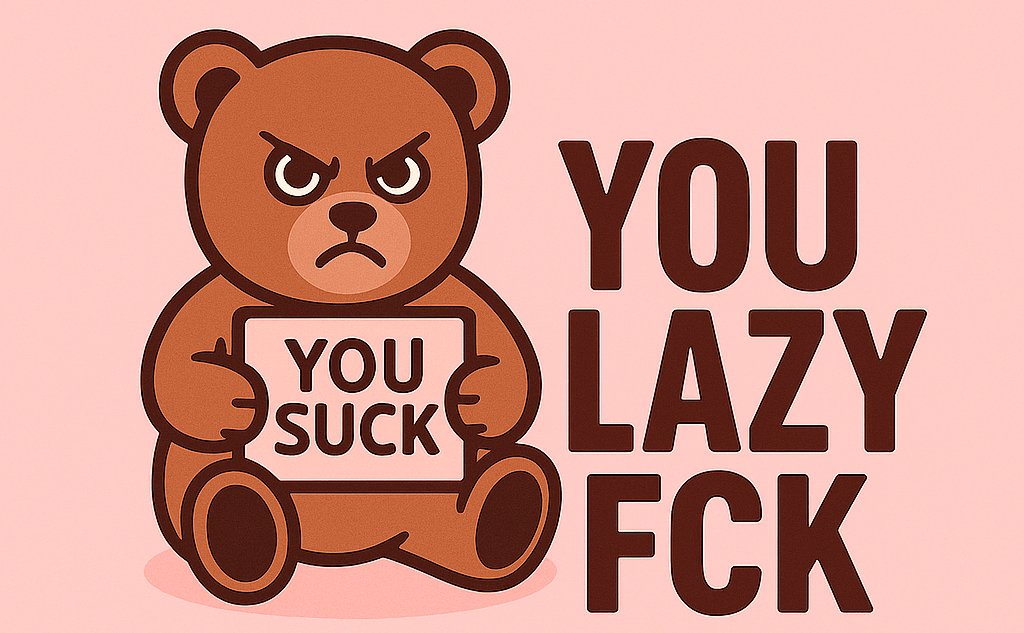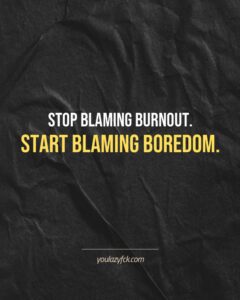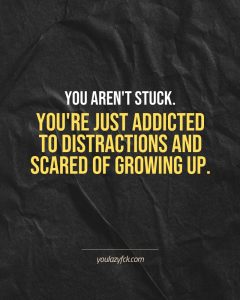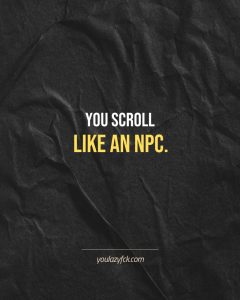The “Perfect Time” Is Just Never
Spoiler: it doesn’t exist. That magical, aligned, destiny-approved perfect time is a bedtime story for adults who are scared of trying. Life doesn’t hand you timing. It hands you chaos. Stop waiting for the stars to align. They won’t. Act under bad lighting.
The Myth That Keeps You Still
You have a ritual. You whisper that you will start when the calendar frees up, when the economy stabilizes, when you finish three more tutorials, when the kid sleeps through the night, when your brain feels fresh, when the fear drops to a respectful whisper. You stack conditions like a nervous lawyer building an alibi. Then you call it prudence.
It is not prudence. It is paralysis in a decent suit. The myth of perfect timing is a convenient delay button. It says, “Later is safer,” while later quietly robs you. You think you are protecting your future from risk. You are starving it of oxygen.
The truth is simple and uncomfortable. If you only move when it feels perfect, you will not move. Life does not issue green lights. It throws weather at you and asks if you are serious.
What “Perfect Time” Really Means
When you say you are waiting for the right moment, you usually mean one of three things.
- You want certainty before action. You wish for a guarantee that your pitch will land, that your product will sell, that your writing will be praised. You are asking for an outcome you have not earned yet. Outcomes are built by attempts, not by omens.
- You want comfort more than progress. You want the path to be smooth enough that you never feel clumsy, never sound awkward, never publish version one without polish. You want applause without the part where you risk being ignored. Comfort is not a strategy. It is a padded cell.
- You want permission from your ego. You think you need confidence first. You do not. Confidence is the receipt. Courage is the purchase. Waiting for confidence is like waiting to be fit before going to the gym.
So yes, the perfect time is a myth, but it is also a cover story. You are not waiting for alignment. You are avoiding embarrassment. The longer you wait, the heavier the embarrassment gets. Delay is interest on fear.
The Bill for Waiting
Waiting feels free. It is not. It has a price and it gets paid daily.
- Opportunity cost. The idea you do not test today cannot learn, iterate, or compound. Every day of delay is lost feedback, lost skill, lost small wins that would have stacked into big ones. Momentum is a bank account. You either deposit or you watch it stay empty.
- Identity cost. Repetition writes your story. Every day you practice avoidance, you rehearse being the person who avoids. You will call it caution until the label stops sticking and you have to call it what it is. Habit.
- Energy cost. Unfinished intentions burn mental CPU. The loop nags you and you mute it with more content. You tell yourself you are researching. You are sedating.
You think doing nothing is neutral. It is not. Doing nothing is training. You are becoming excellent at postponing your own life.
Chaos Is Not the Enemy
There is a superstition that action must wait until conditions are calm. Calm is the vacation, not the job. The job is navigation. Pilots do not schedule clear skies. They file a plan and take off, then fly through whatever shows up. You are not a weather app. You are the pilot.
Chaos clarifies. It strips you of the luxury of tinkering forever. It forces you to prioritize. It punishes fantasy and rewards movement. When things are noisy, you cannot hear your ego as loudly. Good. You do not need its opinion. You need your first step and the next one after that.
Common Lies You Tell Yourself and How to Kill Them
“I need more information.”
No. You need more reps. There is a limit to what reading will teach you. After that limit, only trying reveals the truth. Read enough to not drown. Then swim.
“I will start when I feel inspired.”
Inspiration is a no-show artist. It arrives after you are already working. Treat it like weather. Nice when it shows up, irrelevant when it does not. Schedule your effort, not your mood.
“I am protecting quality.”
Perfectionism is procrastination in fancy language. Quality is the result of dozens of public drafts, not private fantasies. You will not get to version 10 without shipping version 1.
“I am too busy right now.”
If everything is important, nothing is. Show me your screen time and your calendar, then say busy again. A one hour daily block, protected like rent money, beats a month of wishful thinking.
“It is not the right market yet.”
Markets change by people creating. You are either shaping your market or hiding behind it. Early and imperfect beats late and invisible.
The “Bad Lighting” Rule
Stop waiting for good conditions. Ship when the lighting is bad. Present when the room is small. Publish when the draft still smells like a draft. Make professional effort under amateur circumstances. The skill is not in the environment. The skill is in you.
This is not masochism. It is training. You are hardening your tolerance for uncertainty. You are building the muscle that allows you to execute when the world is not cooperating. That muscle wins seasons. The people you admire did not build it by meditating on the perfect moment. They built it by moving in the rain.
How to Break the Wait Habit
You do not need another motivational poster. You need a protocol. Use this, then adjust to your context. The point is movement, not grace.
- Set a launch date within 7 days. Not a quarter from now. Not “soon.” A real date. Put it on a calendar and tell three people who will laugh at you if you bail. Shame can be a useful safety harness when your discipline is young.
- Define the minimum viable action. The smallest step that belongs in the public world. Draft a page. Publish a landing page with one sentence and an email box. Email a prospect. Record a rough demo. Your minimum action should be executable in under 90 minutes.
- Create a friction audit. Lay out every step from now to launch. Remove the tiny frictions that turn into speed bumps. Preload templates. Prewrite outreach scripts. Pack your gym bag at night. Old you loses to zippered bags and missing passwords. Make it smooth to start and hard to stop.
- Use a daily non-negotiable. Three actions, every day, regardless of mood. For example: publish one paragraph, send one cold email, complete one design iteration. Track streaks. Break the chain as rarely as you skip breathing.
- Measure momentum, not miracles. Your scoreboard should show effort you control. Number of publishes, number of reps, number of attempts. Outcomes will come after you have enough tries to deserve them.
- Build a public feedback loop. Share progress where someone can see it. A small audience is enough. Public progress reduces the temptation to vanish. It also generates the only resource you cannot buy. Proof of work.
- Introduce consequence. If you miss a commitment, pay a fine to a charity you dislike, or ship something intentionally mediocre as punishment. Pain works. It is not romantic, but it is reliable.
- Schedule boredom. Practice working without novelty. Turn off stimulation. Put an hour on the clock and work in silence. Boredom tolerance is the backbone of consistency.
- Iterate weekly. End each week with a blunt review. What moved the needle. What was theater. Keep the needle movers. Cut the theater.
- Repeat until it looks like you planned it this way. Once people see the outputs, they will think you finally found the perfect time. Smile. Then do it again next week.
The Seven Day No Readiness Sprint
If you need a script, here is one. Treat it like a contract with yourself.
- Day 1: Declare the thing. One sentence mission. Define your minimum viable action. Set a public launch date.
- Day 2: Friction audit. Gather tools, templates, logins, lists. Remove trivial blockers. Prepare a simple progress dashboard.
- Day 3: First public micro release. A post, a teaser, a landing page. Do it under bad lighting. No polish yet.
- Day 4: Ten outreach actions. Cold emails, DMs, calls. Ship them without overthinking. Track responses, not feelings.
- Day 5: Version two of the thing. Fix the one biggest flaw. Ignore everything else. Publish again.
- Day 6: Teach something you learned this week. A short thread, a two minute video, a checklist. Teaching forces clarity.
- Day 7: Review and reset. Keep what worked. Kill what did not. Set next week’s non-negotiables. Increase the difficulty by one notch.
At the end of this sprint you will not be ready. You will be moving. That is the point. Motion produces readiness. Readiness does not produce motion.
Micro Scripts for When You Stall
Use these lines to cut through your own noise.
- “I do not need certainty. I need a first step.”
- “I will publish the ugly version. The good version can show up later.”
- “One hour of effort is more valuable than a day of thinking about it.”
- “If I am embarrassed, I am learning at the correct speed.”
- “Action now. Analysis after.”
Failing on Schedule
You will miss. You will misjudge. You will post something that lands with the elegance of a brick. Good. You just bought information no book could sell you. Failure is data. The only people who do not fail in public are the ones who quietly fail in private and then pretend they were smart for never trying.
Normalize the bruise. The first time you send the awkward email, you worry the world will end. It does not. The second time, it stings less. The tenth time, it is another line in your routine. That is the upgrade. Not the outcome, the tolerance. The ability to move through fear without waiting for fear to evaporate.
Objections You Love and Why They Are Weak
“What if the timing ruins my chance?”
You are not launching a space telescope. You are posting, shipping, asking, building. There will be another attempt and another one after that. You are not out of chances. You are out of excuses.
“I will embarrass myself.”
You will. Congratulations, you are alive. The embarrassment fades. The skill remains. Your future self will be grateful you were willing to look new at something.
“But I want to do it right.”
Do it raw first. Right comes from repetitions performed in public. You are not protecting the work by hiding it. You are keeping it from the feedback that would make it better.
“It is too small to matter.”
Small is the seed. Every big thing was once a tiny, lopsided prototype. If you refuse to start small, you are refusing to start.
“I will start when I am confident.”
Confidence is a byproduct. Act first. The competence builds. Confidence notices and catches up.
A Practical Checklist You Can Use Today
- Pick a launch date within 7 days and publish it somewhere someone can see it.
- Define the smallest public action that moves the project forward.
- Prepare tools and templates to remove trivial friction.
- Commit to three daily non-negotiables tied to execution, not outcomes.
- Track momentum metrics such as publishes, reps, attempts.
- Introduce a consequence for missed commitments.
- Share progress publicly to create feedback and accountability.
- Review weekly and cut anything that looks like productive theater.
Print it. Tape it to your wall. Then use it until your brain understands that movement is normal and hesitation is the anomaly.
The Part Where You Actually Start
You are hoping for a final surge of magic. There is none. There is only the next hour and what you put inside it. Put something in it that your future self will respect. Do the first ugly rep. Write the offer and send it even if your hand shakes. Submit the application though your voice still wobbles. Record the demo with background noise. Launch in the wrong season. Introduce yourself before your bio is perfect. Act under bad lighting.
The perfect time is not late. It is fictional. The real time, the only time you can use, is now. You do not need luck. You need the courage to be a beginner in public. The people who look lucky have simply survived enough awkward attempts that you missed the messy middle. If you want their outcomes, you have to want their mess.
Final Slap
The perfect time is not coming. You either build now, or you never will. Choose one. Then act as if you are serious. Because you are either writing the story or rereading the same chapter until the pages turn yellow.
If you want more blunt honesty with a pulse, you already know where to go: YOULAZYFCK.COM. Now stop stalling. Pick the worst possible moment and start anyway.




